
Arugam Bay: The Surfer's Paradise of Sri Lanka
Arugam Bay is a small town located on the southeast coast of Sri Lanka. Famous for its golden sandy beaches and crystal-clear waters, it has become a top destination for surfers from around the world. The waves here are perfect for both beginners and experienced surfers, making it an ideal spot for anyone looking to catch some waves. Beyond surfing, Arugam Bay offers a relaxed and laid-back atmosphere. The town is dotted with cozy cafes, beachside bars, and local eateries serving delicious Sri Lankan cuisine. Fresh seafood is a highlight, with many restaurants offering daily catches prepared in traditional styles. For those interested in wildlife and nature, Arugam Bay is close to several national parks, including Kumana National Park. Here, visitors can embark on safari tours to see elephants, leopards, and a variety of bird species. The nearby Pottuvil Lagoon is another must-visit for its serene boat rides and abundant wildlife. Cultural enthusiasts will appreciate the nearby ancient temples and historic sites, such as the Muhudu Maha Viharaya and the Magul Maha Viharaya, which provide a glimpse into the region's rich history. Whether you're an adventurer, a foodie, or a history buff, Arugam Bay has something to offer everyone.
Local tips in Arugam Bay
- Visit during the dry season from April to October for the best surfing conditions.
- Rent a scooter or tuk-tuk to explore nearby attractions and beaches.
- Attend the local beach parties, especially during the peak surfing season.
- Try local dishes like kottu roti and fresh seafood at beachside restaurants.
- Bring mosquito repellent, especially if you plan to visit the nearby lagoons.
Arugam Bay: The Surfer's Paradise of Sri Lanka
Arugam Bay is a small town located on the southeast coast of Sri Lanka. Famous for its golden sandy beaches and crystal-clear waters, it has become a top destination for surfers from around the world. The waves here are perfect for both beginners and experienced surfers, making it an ideal spot for anyone looking to catch some waves. Beyond surfing, Arugam Bay offers a relaxed and laid-back atmosphere. The town is dotted with cozy cafes, beachside bars, and local eateries serving delicious Sri Lankan cuisine. Fresh seafood is a highlight, with many restaurants offering daily catches prepared in traditional styles. For those interested in wildlife and nature, Arugam Bay is close to several national parks, including Kumana National Park. Here, visitors can embark on safari tours to see elephants, leopards, and a variety of bird species. The nearby Pottuvil Lagoon is another must-visit for its serene boat rides and abundant wildlife. Cultural enthusiasts will appreciate the nearby ancient temples and historic sites, such as the Muhudu Maha Viharaya and the Magul Maha Viharaya, which provide a glimpse into the region's rich history. Whether you're an adventurer, a foodie, or a history buff, Arugam Bay has something to offer everyone.
When is the best time to go to Arugam Bay?
Iconic landmarks you can’t miss
Arugam Bay Beach
Discover the beauty and vibrant surf culture of Arugam Bay Beach, a must-visit coastal paradise in Sri Lanka offering relaxation and adventure.
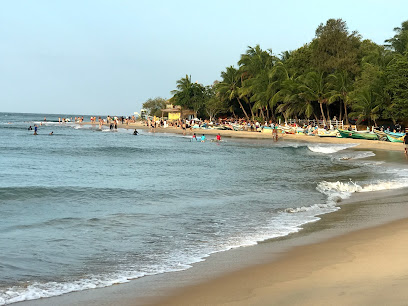
Main Surf Point Arugam Bay
Discover the enchanting beauty and thrilling surf at Main Surf Point Arugam Bay, a top destination for beach lovers and adventure seekers.
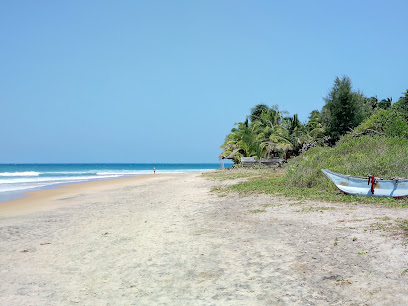
Super Tour Arugam Bay
Explore the breathtaking landscapes and vibrant wildlife of Arugam Bay with Super Tour, your gateway to unforgettable Sri Lankan adventures.
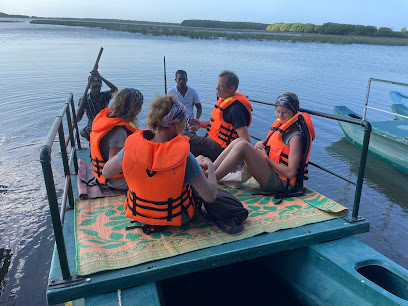
Elephant Rock
Explore the breathtaking beauty of Elephant Rock in Arugam Bay, where adventure and stunning landscapes await every traveler.
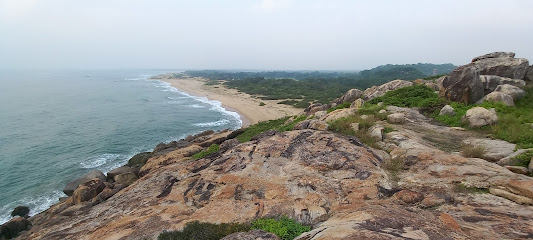
Arugambay Agenda
Explore the wonders of Arugam Bay with Arugambay Agenda, your ultimate travel agency for surfing, wildlife, and unforgettable experiences.
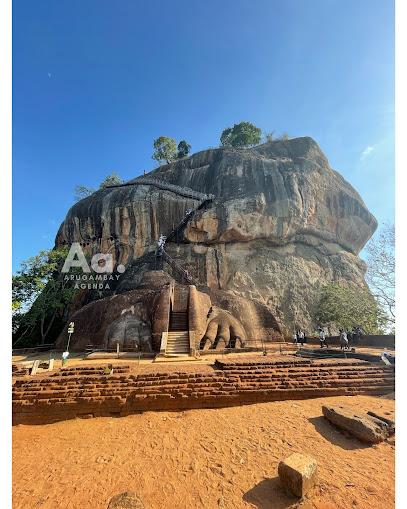
Check In Arugambay
Embrace the tranquility of Check In Arugambay, a stunning coastal retreat offering adventure, relaxation, and warm local hospitality in Sri Lanka.
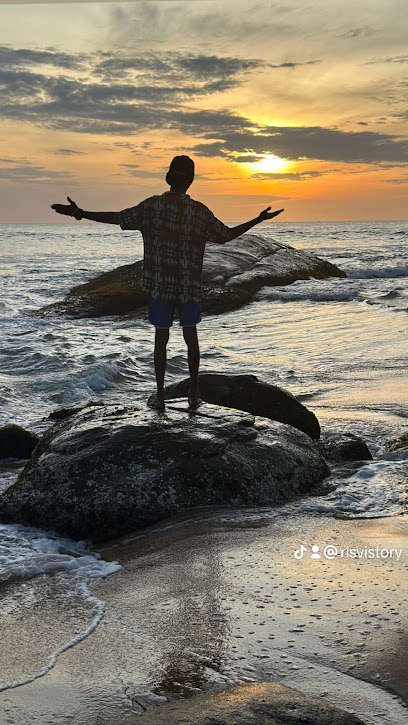
Arugambay view point
Discover the stunning beauty of Arugambay View Point, where breathtaking ocean views and vibrant sunsets come together in perfect harmony.
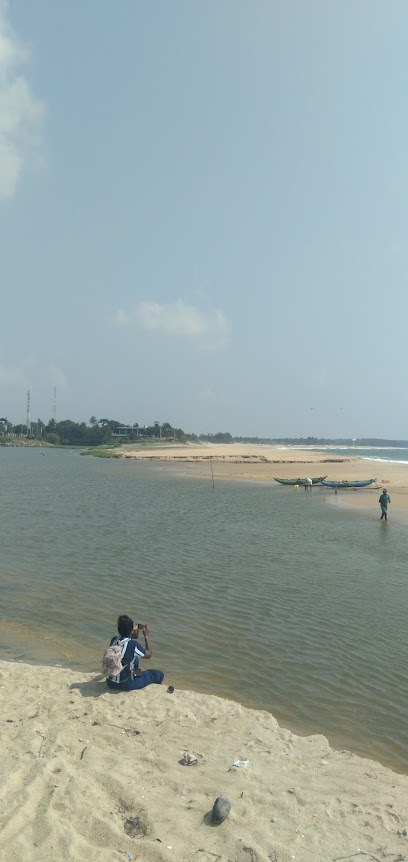
ULLA STATE FOREST
Discover the tranquil beauty of Ulla State Forest near Arugam Bay, a haven for nature lovers and adventure seekers looking for breathtaking landscapes.
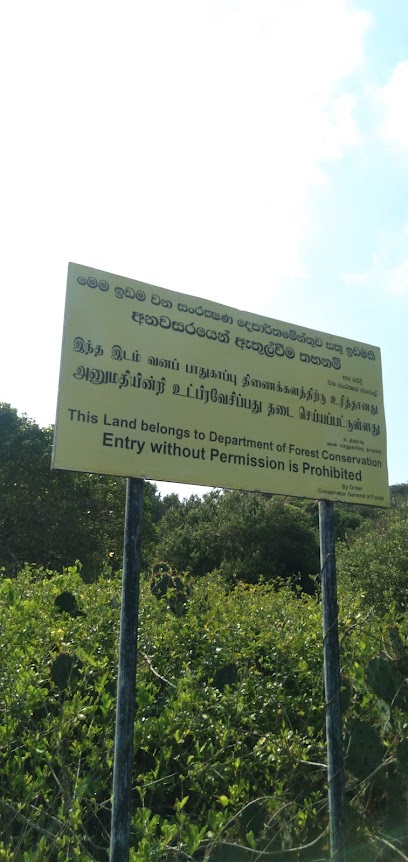
Monkey Point Arugambay
Experience the breathtaking waves and serene beauty of Monkey Point in Arugam Bay, a perfect blend of adventure and tranquility on Sri Lanka's east coast.
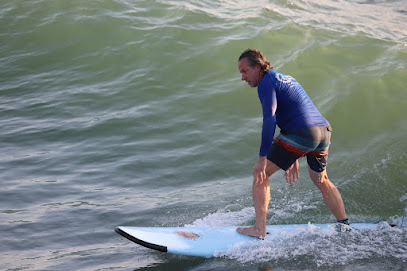
Unmissable attractions to see
කිඹුලාගල | Crocodile Rock
Explore the majestic Crocodile Rock in Arugam Bay, Sri Lanka's hidden gem for adventure and breathtaking coastal views.
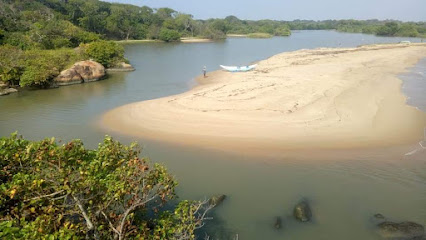
Lesitha Safari
Discover the wonders of wildlife and breathtaking landscapes at Lesitha Safari in Pottuvil, Sri Lanka's ultimate adventure destination.
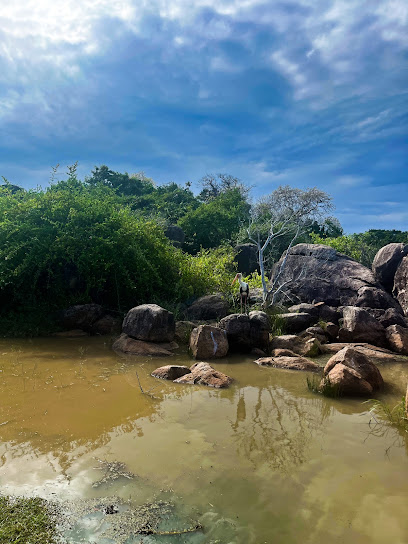
Panama Beach
Experience the beauty and tranquility of Panama Beach, a hidden paradise on Sri Lanka's stunning coast, perfect for relaxation and adventure.
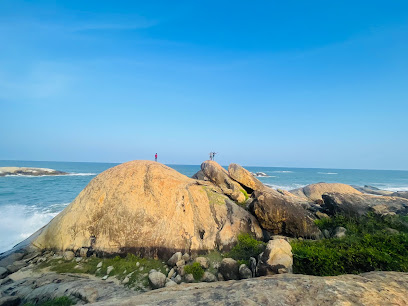
Panama Beach Watch Point
Experience the serene beauty of Panama Beach Watch Point, a hidden gem in Sri Lanka offering stunning ocean views and tranquility.
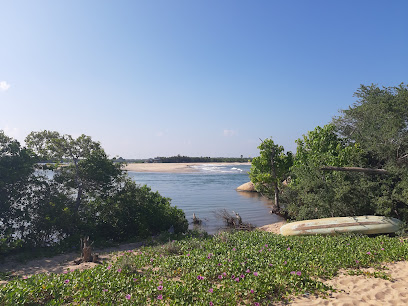
Super Tour Arugam Bay
Explore the breathtaking beaches and wildlife of Super Tour Arugam Bay, an unforgettable destination on Sri Lanka's enchanting east coast.
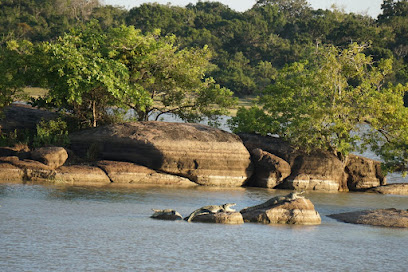
Arugam Bay Beach
Discover the enchanting Arugam Bay, a surfing paradise on Sri Lanka's coast that offers stunning beaches, vibrant culture, and unforgettable adventures.
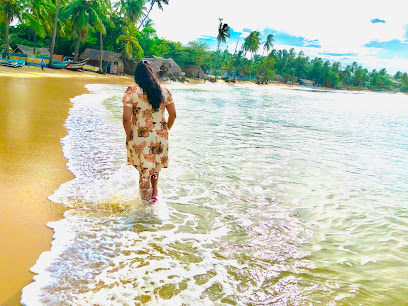
Sangamankanda Lighthouse
Discover Sangamankanda Lighthouse, a breathtaking landmark offering stunning ocean views and a glimpse into Sri Lanka's maritime history.
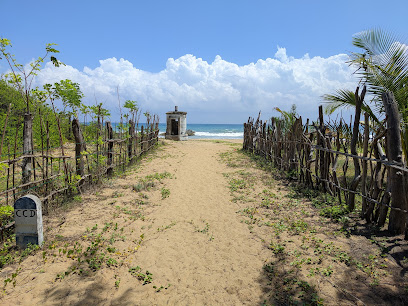
Elephant Rock
Experience the breathtaking views and unique formations at Elephant Rock in Arugam Bay, a must-see natural wonder in Sri Lanka.
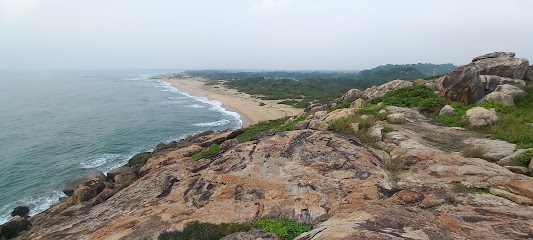
Whisky Point Beach
Discover the tranquility of Whisky Point Beach in Pottuvil, a stunning coastal retreat perfect for relaxation, surfing, and breathtaking sunsets.
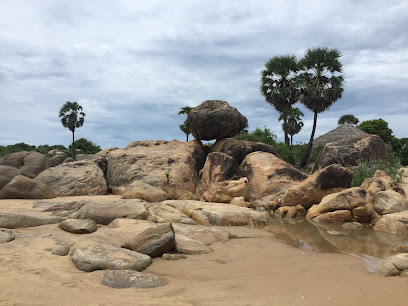
ඔකන්ද වෙරළ | உகந்தை கடற்கரை | Okanda Beach
Explore the unspoiled beauty of Okanda Beach, a serene coastal paradise in Sri Lanka perfect for relaxation and adventure.
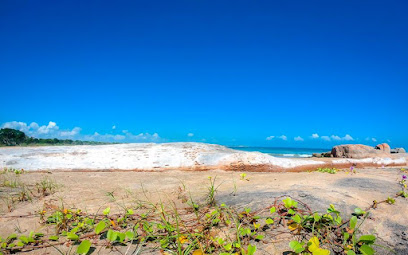
Check In Arugambay
Explore the stunning coastal beauty and vibrant culture at Check In Arugambay, a must-visit tourist attraction in Sri Lanka's Arugam Bay.
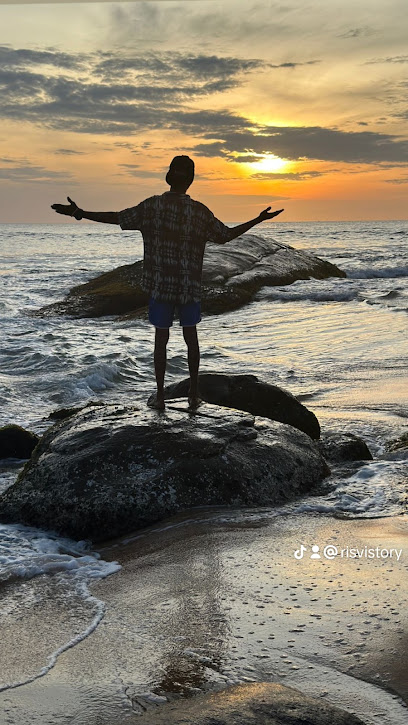
Lagoon Elephant View Point
Discover the breathtaking Lagoon Elephant View Point in Pottuvil, where nature meets tranquility and wildlife flourishes in their natural habitat.
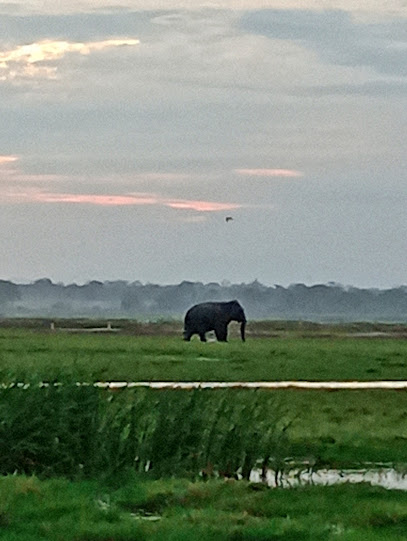
Arugambe
Experience the ultimate blend of surf, sun, and culture in Arugam Bay, Sri Lanka's premier beach destination.
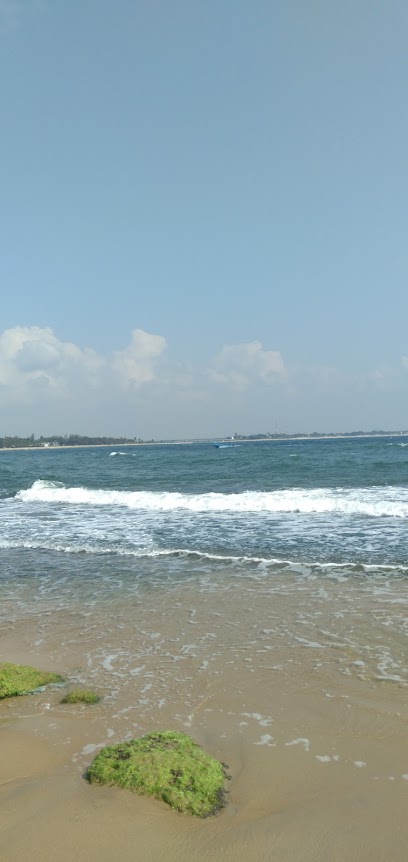
Sunset Point
Experience breathtaking sunsets and serene ocean views at Sunset Point in Arugam Bay, a perfect destination for nature lovers and photographers.
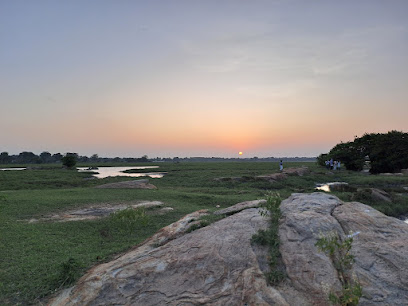
Panama Lagoon
Experience the breathtaking beauty of Panama Lagoon, a serene oasis perfect for nature lovers and adventure seekers alike.
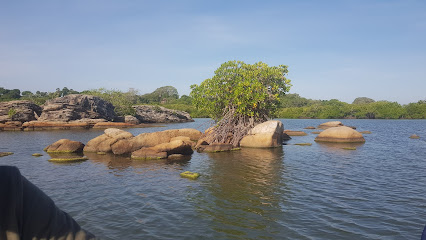
Essential places to dine
Mr Fisherman
Discover authentic Sri Lankan seafood at Mr. Fisherman in Arugam Bay—where fresh catches meet stunning ocean views.
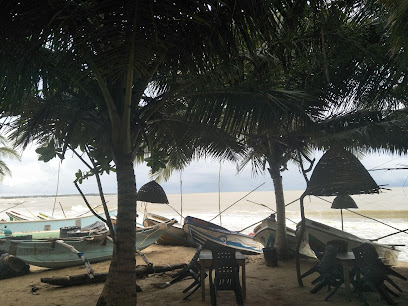
The Sketch
Experience culinary bliss at The Sketch in Arugam Bay – where local flavors meet artistic dining.
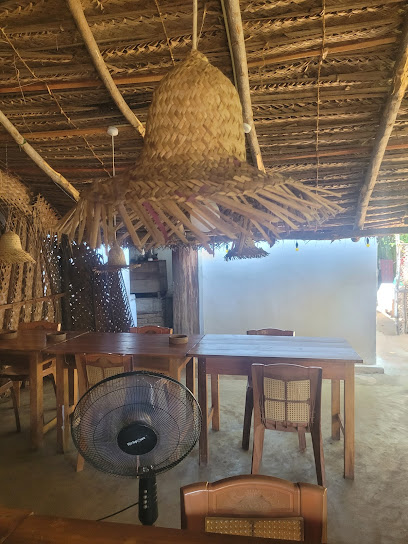
Serendib Arugambay
Experience authentic Sri Lankan cuisine at Serendib Arugambay - where every dish tells a story of flavor and tradition.
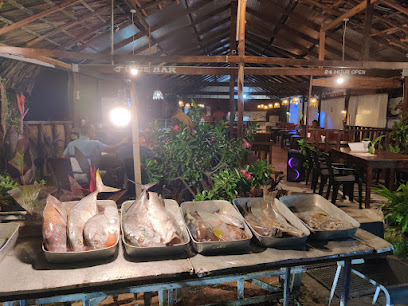
Leaf & Vine | Arugam Bay | Sri Lanka
Discover culinary delights at Leaf & Vine in Arugam Bay - where fresh ingredients meet stunning coastal views.
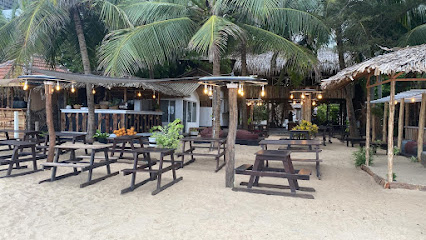
SaltyBeer Restaurant & Bar
Discover mouthwatering burgers and local flavors at SaltyBeer Restaurant & Bar in Arugam Bay – an unforgettable dining experience awaits.
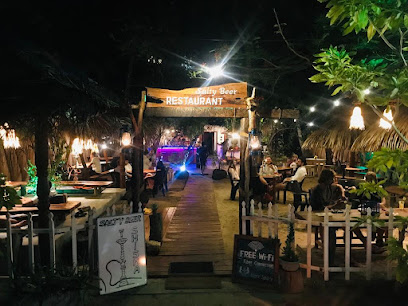
FUCHSBAU ARUGAM BAY
Experience the best seafood and breakfast delights at Fuchsbau Arugam Bay, where delicious flavors meet stunning ocean views.
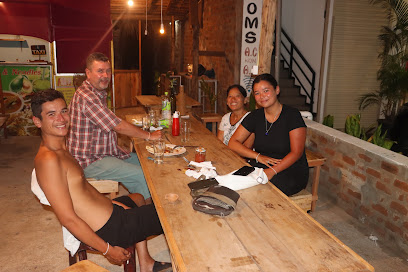
Hakeem's Beach Spot
Discover fresh seafood delights at Hakeem's Beach Spot in Arugam Bay—where taste meets breathtaking ocean views.
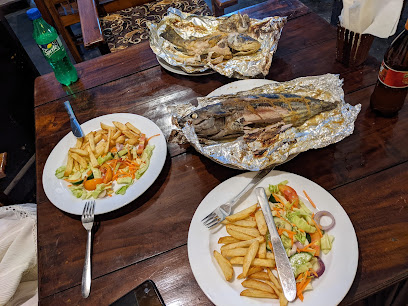
MAMA'S Restaurant Arugambay
Discover the rich flavors of Sri Lanka at Mama's Restaurant in Arugambay – where every dish tells a story.
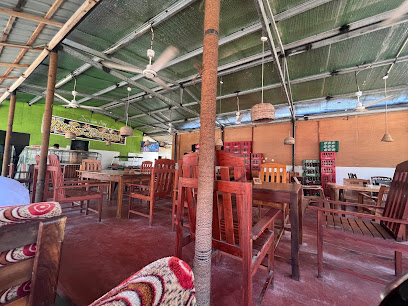
Flo Restaurant
Experience authentic Sri Lankan flavors at Flo Restaurant in Arugam Bay - a must-visit culinary gem by the coast.
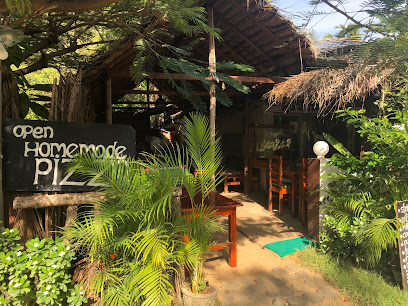
The Green Room
Discover authentic Sri Lankan cuisine at The Green Room in Arugam Bay – where fresh ingredients meet vibrant flavors in a tropical setting.
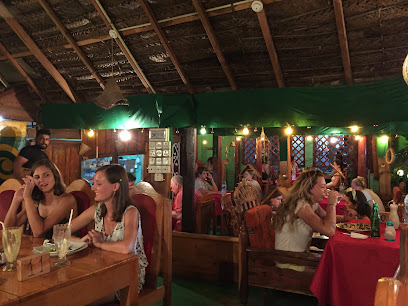
Friends Food Cafe
Experience authentic Sri Lankan cuisine at Friends Food Cafe in Arugam Bay - where every dish tells a story.
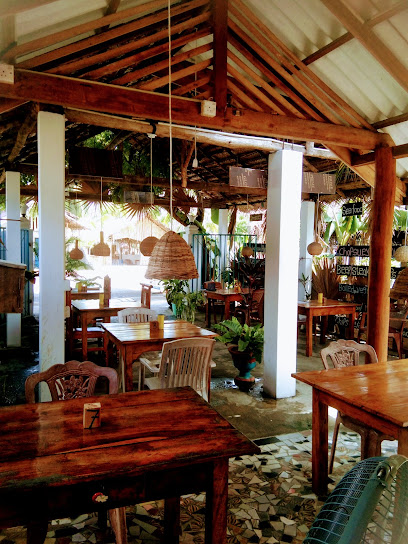
Family House Restaurant
Discover the essence of Sri Lankan cuisine at Family House Restaurant in Arugam Bay—where every dish tells a story.
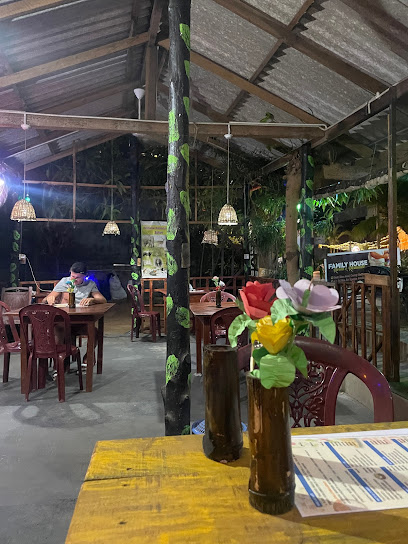
Perera Restaurant
Experience authentic Sri Lankan flavors at Perera Restaurant in Arugam Bay - where tradition meets taste.
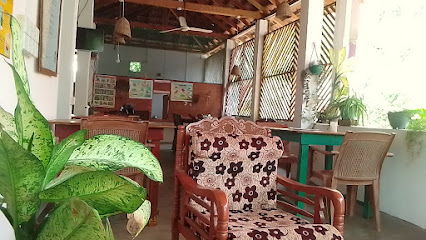
Swell Cafe
Experience vibrant flavors and refreshing dishes at Swell Cafe in Arugam Bay - your culinary haven by the sea.
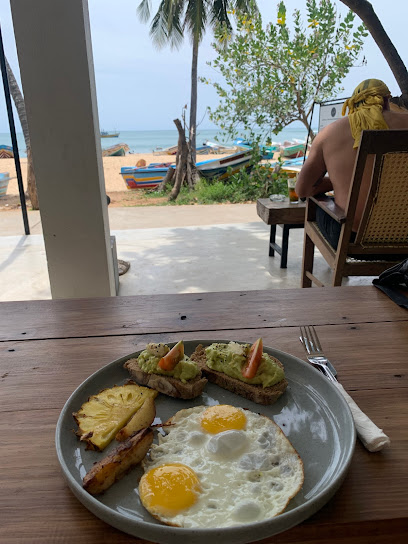
Blue Ocean Restaurant
Experience authentic Sri Lankan cuisine with stunning ocean views at Blue Ocean Restaurant in Arugam Bay.
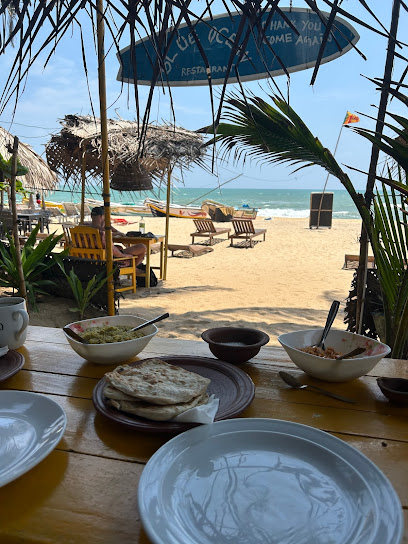
Markets, malls and hidden boutiques
Rice & Carry Shop Arugam Bay
Explore the best local products and flavors at Rice & Carry Shop in Arugam Bay, a vibrant store offering an authentic taste of Sri Lankan culture.
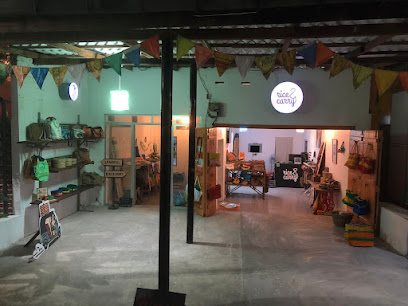
Brandis Arugambay
Explore unique clothing at Brandis Arugambay, where coastal charm meets stylish design in a boutique experience like no other.

MAYA
Discover unique clothing and souvenirs at MAYA, Arugam Bay's premier shopping destination for fashion and local craftsmanship.
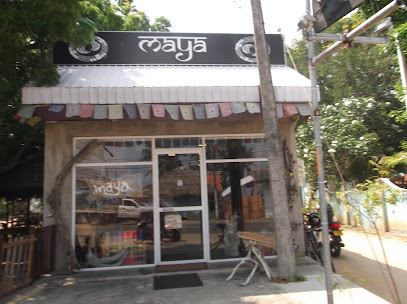
Showroom Pako | Kellla
Explore stylish clothing and incredible quality at Showroom Pako, the ultimate fashion destination in Arugam Bay.

Chill Bay Arugambay
Discover unique clothing and accessories at Chill Bay in Arugambay, where local style meets beach vibes for an unforgettable shopping experience.
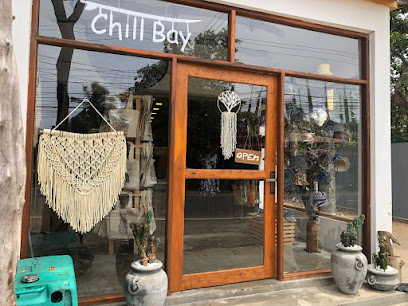
Arugambay Souvenirs
Discover unique handcrafted souvenirs that capture the spirit of Arugam Bay at Arugambay Souvenirs, your perfect stop for memorable keepsakes.
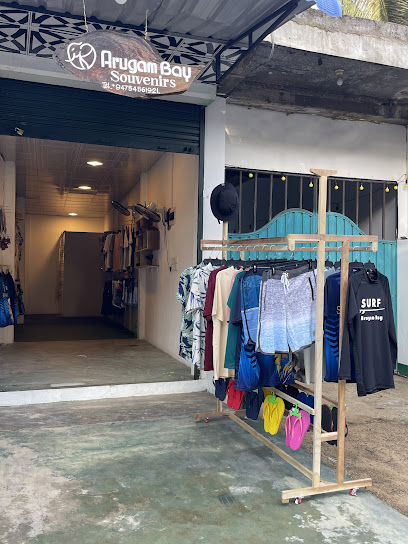
Sri souvenir shop 2
Discover the essence of Sri Lankan culture at Sri Souvenir Shop 2, where unique clothing and accessories await every traveler in Arugam Bay.
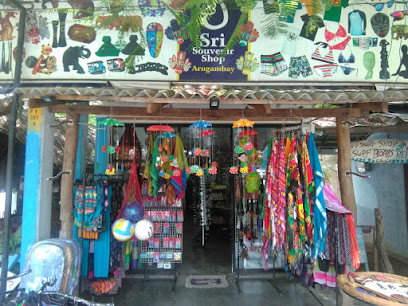
Surfzilla surfshop
Experience the ultimate surfing adventure at Surfzilla Surfshop in Arugam Bay, where waves meet community and adventure awaits.
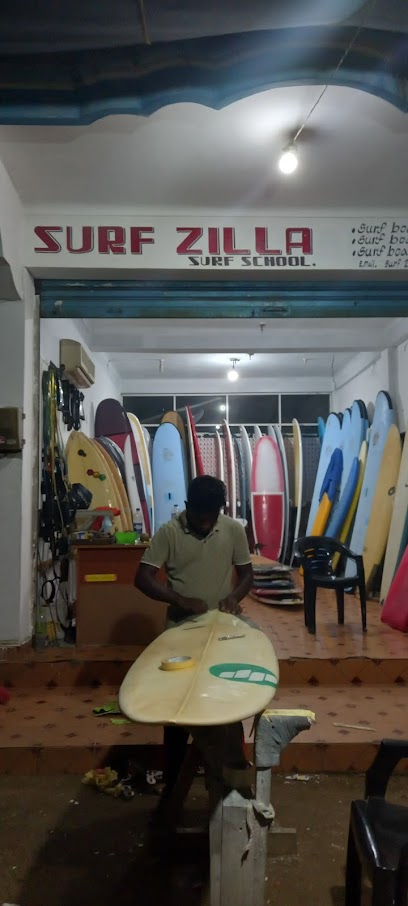
Sri shop
Discover unique gifts and local treasures at Sri Shop in Arugam Bay, where every item tells a story of Sri Lankan culture and craftsmanship.

Apsara swimsuit Tailors
Discover bespoke swimwear at Apsara Swimsuit Tailors in Arugam Bay - where your beach style meets personalized craftsmanship.

Surfcolour Gallary
Explore the vibrant Surfcolour Gallery in Arugam Bay for unique art, surf supplies, and a taste of local craftsmanship that enriches your travel experience.
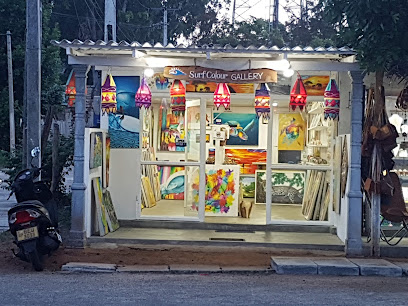
MELLOW / MAH ROC Concept Store
Experience the perfect blend of fashion and local culture at MELLOW / MAH ROC Concept Store in Arugam Bay, Sri Lanka.

Slow Days
Explore unique clothing at Slow Days, a charming boutique in Arugam Bay, where local craftsmanship meets contemporary fashion.
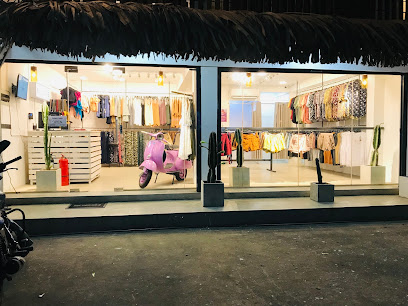
Kurulu surf shop
Explore the ultimate surf experience at Kurulu Surf Shop in Arugam Bay, where adventure meets the ocean in paradise.
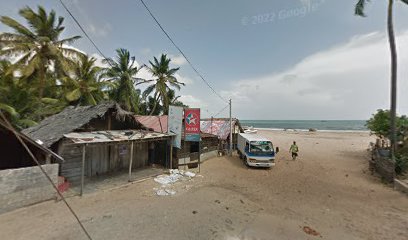
Srilankan Silk
Explore the beauty of Sri Lankan craftsmanship at Srilankan Silk in Pottuvil, featuring exquisite silk products that reflect the island's rich culture.
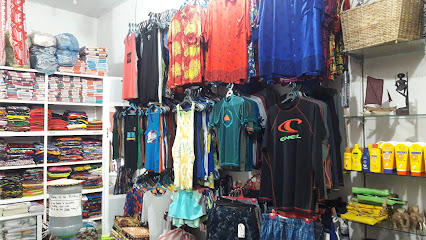
Essential bars & hidden hideouts
The Spice Trail
Experience the serenity of Arugam Bay at The Spice Trail, where comfort meets local culture in a stunning coastal setting.
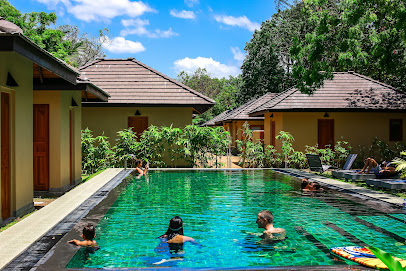
Siam View Hotel -SVH-
Discover the vibrant atmosphere and local brews at Siam View Hotel, the perfect spot for relaxation in Arugam Bay.
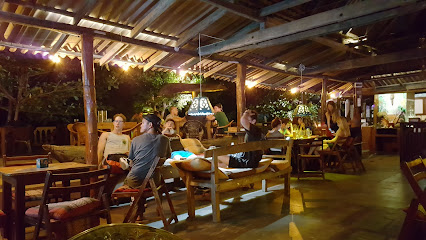
Leaf & Vine | Arugam Bay | Sri Lanka
Discover the vibrant flavors of Sri Lankan cuisine at Leaf & Vine in Arugam Bay, a culinary haven for every food lover.
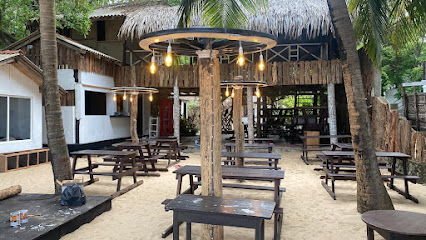
Surf N Sun - Arugambay
Discover the perfect blend of adventure and relaxation at Surf N Sun in Arugambay, Sri Lanka's premier coastal getaway.

Hideout Lounge Arugambay
Experience the best of Arugambay at Hideout Lounge, where local flavors meet international cuisine in a vibrant atmosphere.

Dream Garden Restaurant & Bar
Experience the best of Italian cuisine at Dream Garden Restaurant & Bar in Pottuvil, where every dish is a culinary masterpiece in a serene setting.
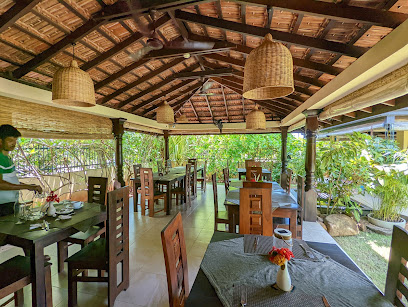
Hide & Chill Bar
Unwind at Hide & Chill Bar, a serene retreat in Arugam Bay offering refreshing drinks, delicious bites, and a relaxing atmosphere.
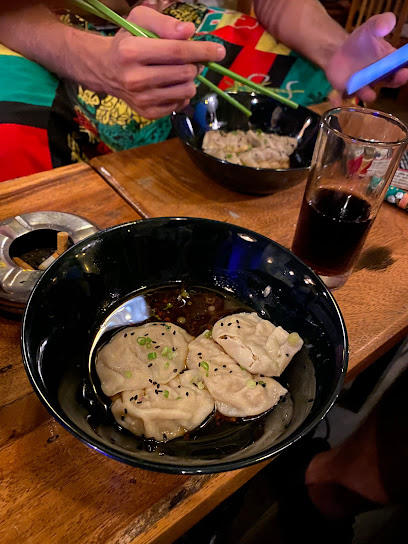
Funky de bar
Discover the vibrant nightlife at Funky de Bar in Pottuvil, where delicious drinks and a lively atmosphere await every visitor.
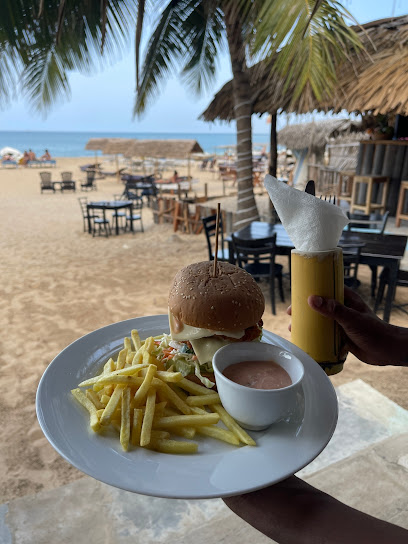
Beach Point resto-lounge
Discover the flavors of Sri Lanka at Beach Point Resto-Lounge, where fresh seafood meets breathtaking beach views in Arugam Bay.
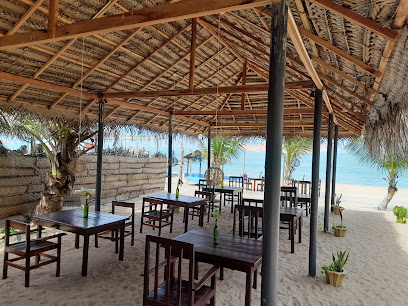
Hideaway Blue Cafe and Bar
Experience the perfect blend of local flavors and vibrant atmosphere at Hideaway Blue Cafe and Bar in Arugam Bay.
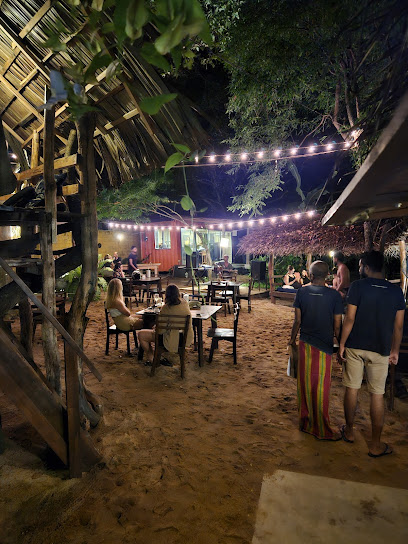
Subashi beer pub and Restaurant
Discover the lively spirit of Subashi Beer Pub and Restaurant in Arugam Bay, where great food and drinks meet a vibrant atmosphere.
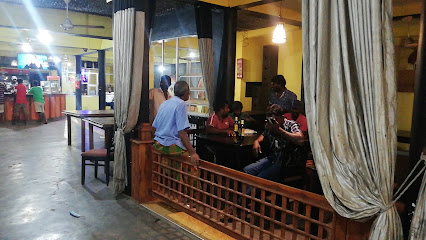
OceanSky
Discover the serene charm of OceanSky, a beachfront bar in Arugam Bay where relaxation meets stunning coastal views.
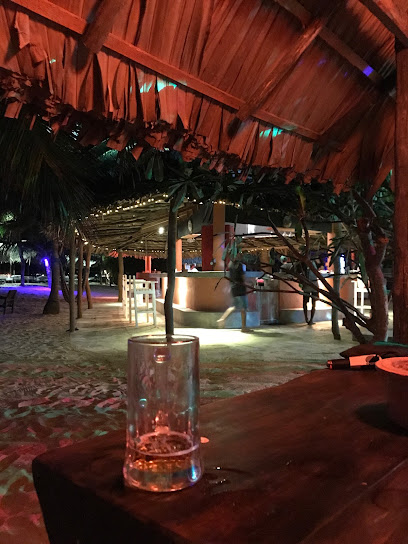
Arugambay Bar
Discover the charm of Arugambay Bar, a vibrant coastal hotspot in Arugam Bay, perfect for relaxation and socializing with stunning ocean views.
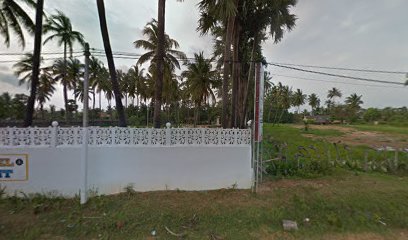
Funky Monkey Arugambay
Discover the vibrant energy of Funky Monkey Arugambay, where delicious drinks meet stunning beach views in a lively atmosphere.
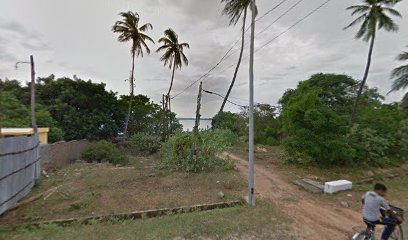
King coconut fresh juice bar
Experience the refreshing taste of Sri Lanka at King Coconut Fresh Juice Bar, where every sip is a tropical delight.
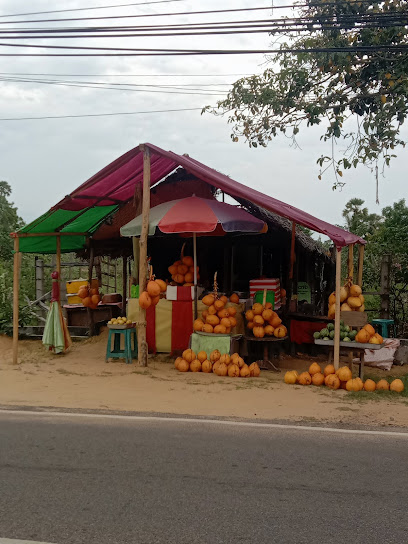
Local Phrases about Arugam Bay
-
- Helloහායි
[ha-yi] - Goodbyeසමුදා
[samu-da] - Yesඔව්
[o-vu] - Noනෑ
[nae] - Please/You're welcomeකරුණාවෙන්/කරලාවෙන්
[ka-run-aa-ve-na/ka-ra-la-ve-na] - Thank youඔබේ ස්තූනියාව
[o-be sthu-ni-ya-va] - Excuse me/Sorryකරුණාවේ/කිස්සාගේ
[ka-run-aa-ve/ki-ssaa-ge] - How are you?ඔයා කොහරද?
[o-ya ko-ha-ra-da] - Fine. And you?හොඳිද. ඔයා?
[ho-ni-da. o-ya] - Do you speak English?ඔබ ඉංග්රීසි කතා කරයිද?
[o-ba in-gri-si ka-tha ka-ra-yi-da] - I don't understandමම දත්ත නොහැකියි
[ma-ma da-tha no-hae-ki-yi]
- Helloහායි
-
- I'd like to see the menu, pleaseමම මෙනු බලන්නයි
[ma-ma me-nu ba-lan-nai] - I don't eat meatමම මස් කරන්න නෑ
[ma-ma ma-sa ka-ran-na nae] - Cheers!සුභ කිරීම්!
[su-ba ki-ri-mu] - I would like to pay, pleaseමම ගෙවන්නයි
[ma-ma ge-van-nai]
- I'd like to see the menu, pleaseමම මෙනු බලන්නයි
-
- Help!උක්මෙන්න!
[uk-men-na] - Go away!යන්න!
[yan-na] - Call the Police!පොලිස් අපෙන්න!
[po-lis a-pe-nna] - Call a doctor!වෛරස් අපෙන්න!
[va-ras a-pe-nna] - I'm lostමම අපිවෙන්නයි
[ma-ma api-ve-nnai] - I'm illමම අවසානයි
[ma-ma a-va-sa-nai]
- Help!උක්මෙන්න!
-
- I'd like to buy...මම මිලදීගන්නයි...
[ma-ma mi-la-di-gan-nai...] - I'm just lookingමම දර්ශනය වෙනවා
[ma-ma da-rshana-ve-na-va] - How much is it?එයට කොකියි?
[e-ya-ta ko-ki-yi] - That's too expensiveඑය වේගයි
[e-ya ve-ga-yi] - Can you lower the price?මිල අවම කරයිද?
[mi-la a-wa-ma ka-ra-yi-da]
- I'd like to buy...මම මිලදීගන්නයි...
-
- What time is it?වේදි කවද?
[ve-di ka-va-da] - It's one o'clockඑක වේදියි
[e-ka ve-di-yi] - Half past (10)දහයි (හතරය)
[da-ha-yi (ha-tha-ra-ya)] - Morningඋදේරස්
[u-da-ra-sa] - Afternoonපසළොස්
[pa-sa-lo-sa] - Eveningවැනි දිව්ව
[va-ni di-wa-va] - Yesterdayඊයේ
[i-ye] - Todayඅද
[a-da] - Tomorrowහෙත
[he-tha] - 1එක
[e-ka] - 2දෙක
[da-e-ka] - 3තුන
[thu-na] - 4හත
[ha-tha] - 5පහ
[pa-ha] - 6හය
[ha-ya] - 7හත්ව
[ha-thu-va] - 8අට
[a-ta] - 9නවය
[na-va-ya] - 10දහය
[da-ha-ya]
- What time is it?වේදි කවද?
-
- Where's a/the...?... කෙහෙද?
[... ke-he-da] - What's the address?ලිපිනය කෙහෙද?
[li-pi-na-ya ke-he-da] - Can you show me (on the map)?මම මපෙන් පෙන්නයිද?
[ma-ma ma-pe-n pae-nnai-da] - When's the next (bus)?ඊළඟට කෙහෙද?
[i-la-ga-ta ke-he-da] - A ticket (to ....)ප්රාචිද්දය (.... වෙත)
[pra-chi-da-da-ya (.... ve-tha)]
- Where's a/the...?... කෙහෙද?
History of Arugam Bay
-
Arugam Bay has long been a significant point along ancient maritime trade routes. Archaeological evidence suggests that the area was a thriving settlement as early as 2000 BCE. Merchants from Arabia, Persia, and the Indian subcontinent frequented this coastal region, facilitating the exchange of goods such as spices, textiles, and precious stones. The natural harbor and strategic location made it an essential stopover for seafarers of the ancient world.
-
During the Anuradhapura period (377 BCE–1017 CE), Arugam Bay became an important site for Buddhist monks and scholars. The nearby Muhudu Maha Viharaya temple, believed to have been built in the 5th century, stands as a testament to the region's rich Buddhist heritage. This temple is thought to have been used by monks traveling between the major monastic centers of Anuradhapura and the eastern regions of Sri Lanka. The presence of ancient stupas and monastic ruins further emphasizes the religious significance of the area.
-
The arrival of European colonial powers in the 16th century brought significant changes to Arugam Bay and its surroundings. The Portuguese, Dutch, and British all left their mark on the region. The Portuguese were the first to establish a presence, followed by the Dutch, who constructed fortifications and trading posts. The British, who later colonized the island, introduced new administrative structures and infrastructure, influencing the local culture and economy. Remnants of colonial architecture and artifacts can still be found in the area.
-
The Sri Lankan Civil War, which lasted from 1983 to 2009, had profound effects on Arugam Bay. The region was significantly impacted by the conflict between the Sri Lankan government and the Liberation Tigers of Tamil Eelam (LTTE). Many local communities faced displacement, and the tourism industry suffered. However, the post-war period has seen a resurgence in development and tourism, with efforts to rebuild and restore the area to its former glory. Today, Arugam Bay stands as a symbol of resilience and recovery.
-
In the latter part of the 20th century, Arugam Bay gained international recognition as a premier surfing destination. Surfers from around the world were drawn to its consistent waves and pristine beaches. The annual surfing competitions held here have further cemented its reputation. This transformation has led to the development of a vibrant tourism industry, with numerous surf schools, resorts, and eco-friendly accommodations catering to the influx of adventure-seeking travelers.
Arugam Bay Essentials
-
Arugam Bay is located on the southeast coast of Sri Lanka. The nearest international airport is Bandaranaike International Airport (CMB) in Colombo, approximately 320 kilometers away. From Colombo, you can take a domestic flight to Batticaloa Airport (BTC), which is closer to Arugam Bay. Alternatively, you can travel by train or bus from Colombo to Pottuvil, the nearest town, and then take a tuk-tuk or taxi to Arugam Bay. The journey by road typically takes around 7-8 hours.
-
Within Arugam Bay, tuk-tuks are the most common and convenient mode of transportation. They are readily available and can be hired for short trips around the area. Bicycles and scooters are also popular options for exploring at your own pace. For longer distances, taxis are available, and some hotels offer shuttle services. Public buses operate between Pottuvil and nearby towns, but they can be crowded and less comfortable.
-
The official currency in Sri Lanka is the Sri Lankan Rupee (LKR). Credit cards are accepted in many hotels, restaurants, and larger shops, but it is advisable to carry cash for smaller establishments and local markets. ATMs are available in Pottuvil, but it is wise to withdraw sufficient cash before arriving in Arugam Bay, as facilities can be limited.
-
Arugam Bay is generally safe for tourists, but it is always best to take standard precautions. Avoid walking alone at night in unfamiliar areas and keep an eye on your belongings in crowded places. While Arugam Bay does not have specific high-crime areas targeting tourists, it is advisable to stay vigilant and aware of your surroundings.
-
In case of emergency, dial 119 for immediate assistance. The nearest police station is in Pottuvil, and there are basic medical facilities in the area. For more serious health issues, Batticaloa Teaching Hospital is the nearest major hospital. It is recommended to have travel insurance that covers medical emergencies. Pharmacies are available in Pottuvil for over-the-counter medications.
-
Fashion: Do dress modestly, especially when visiting religious sites. Avoid wearing revealing clothing. Religion: Do respect local customs and traditions. Always remove your shoes and cover your head when entering temples and places of worship. Public Transport: Do be respectful and give up your seat to elderly passengers. Don’t eat or drink on public transport. Greetings: Do greet people with a smile and a slight bow. A handshake is also acceptable. Eating & Drinking: Do try local delicacies and accept food offerings graciously. Don’t refuse hospitality, as it is considered impolite.
-
To experience Arugam Bay like a local, visit the local markets where you can buy fresh produce, seafood, and traditional Sri Lankan goods. Engage with locals, as they are often friendly and willing to share stories about the area's culture and history. Don't miss the sunrise at Elephant Rock, a popular spot for both locals and tourists. For a unique experience, participate in a traditional Sri Lankan cooking class offered by some local families.
Nearby Cities to Arugam Bay
-
Things To Do in Nuwara Eliya
-
Things To Do in Kandy
-
Things To Do in Polonnaruwa
-
Things To Do in Sigiriya
-
Things To Do in Matara
-
Things To Do in Mirissa
-
Things To Do in Unawatuna
-
Things To Do in Galle
-
Things To Do in Trincomalee
-
Things To Do in Hikkaduwa
-
Things To Do in Bentota
-
Things To Do in Colombo
-
Things To Do in Negombo
-
Things To Do in Anuradhapura
-
Things To Do in Jaffna









